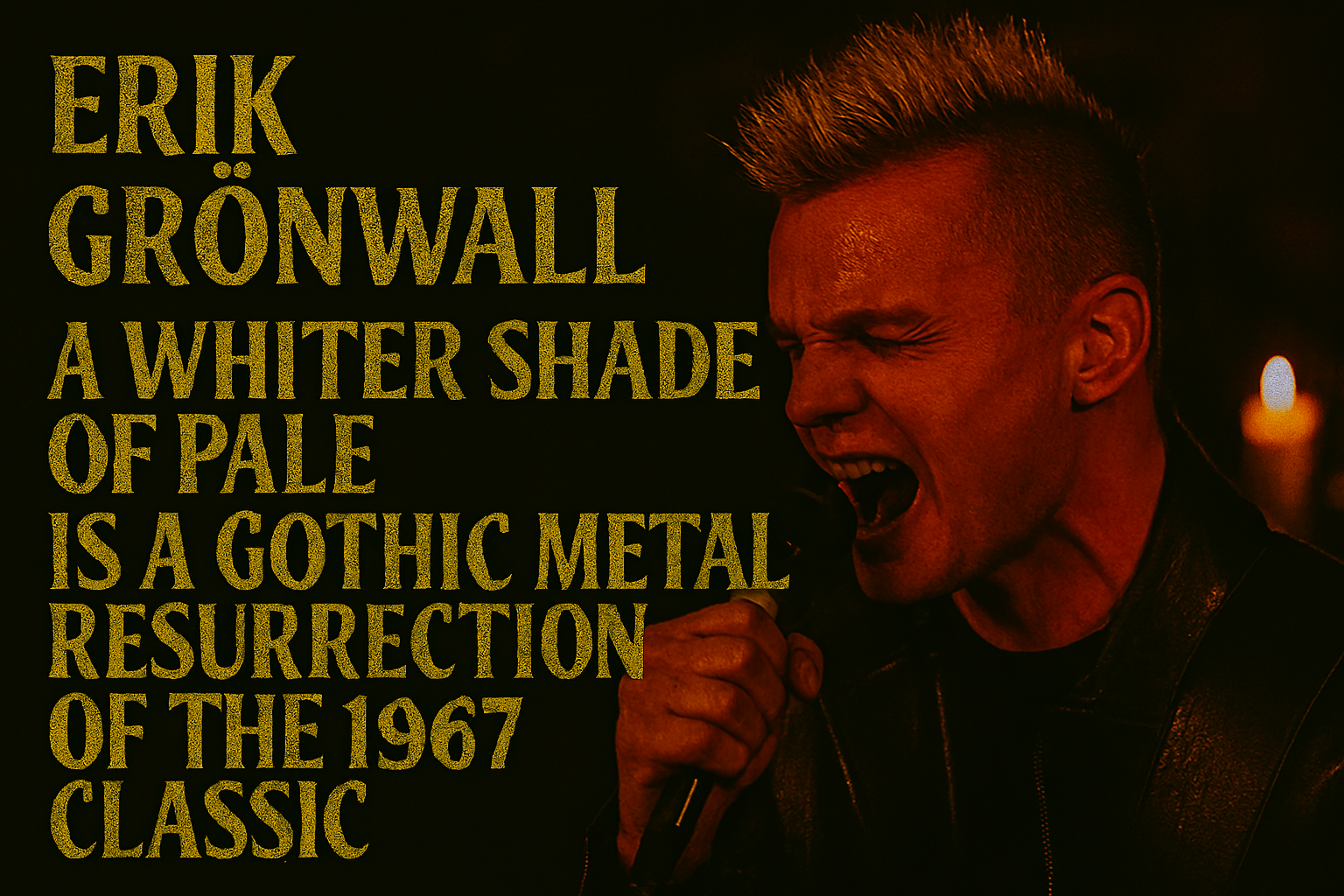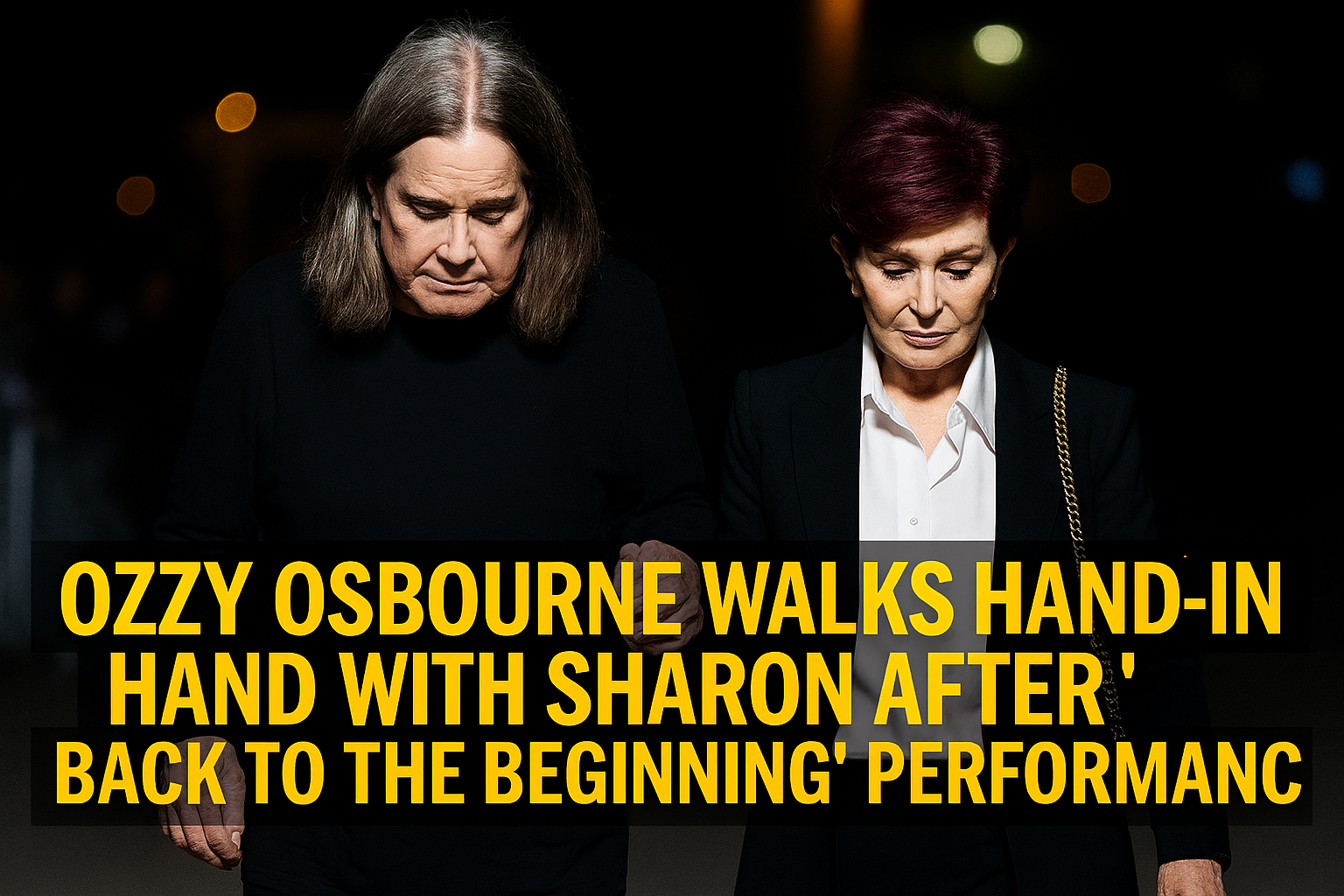Erik Grönwall’s reimagining of “A Whiter Shade of Pale” transforms the 1967 classic into a gothic metal masterpiece, blending raw intensity with timeless emotion in one of the most breathtaking performances of his career.
Originally released by Procol Harum, “A Whiter Shade of Pale” is widely regarded as one of the most haunting and poetic songs of the ’60s. Its baroque-inspired organ melody and cryptic lyrics have captivated listeners for decades. But when Erik Grönwall—former Skid Row frontman and rising solo artist—decided to reinterpret the track, he didn’t just cover it. He resurrected it.
Grönwall’s version opens with a slow, cinematic build. The iconic organ line is replaced by ambient piano and atmospheric textures, setting a mood that’s both reverent and eerie. His voice enters gently, almost ghostlike, before rising into a full-throated roar. The contrast between the quiet intro and the explosive chorus mirrors the emotional arc of the song itself—loss, longing, and transcendence.
His vocals are the centerpiece. Gritty yet graceful, Grönwall balances vulnerability with power. He doesn’t mimic the original; he inhabits it. Each phrase is delivered with conviction, as if he’s lived every lyric. By the time he reaches the final verse, his voice soars over a wall of sound—distorted guitars, orchestral strings, and thunderous drums—creating a climax that feels both cathartic and spiritual.
The video, filmed in a dimly lit studio with candlelight and shadowy backdrops, adds visual depth to the performance. Grönwall stands alone, dressed in dark gothic attire, surrounded by flickering flames and vintage decor. The setting evokes themes of memory, mourning, and rebirth—perfectly aligned with the song’s emotional tone.
Fans and critics have praised the cover as one of Grönwall’s finest. The video has garnered over a million views in just a few months, with thousands of comments calling it “a spiritual experience,” “the best version ever,” and “proof that metal can be deeply emotional.” Even longtime fans of Procol Harum have expressed admiration, noting how Grönwall’s interpretation brings new meaning to the lyrics.
Part of the magic lies in the arrangement. Produced by Jona Tee, Grönwall’s longtime collaborator, the track builds slowly and deliberately. It begins with minimal instrumentation, gradually layering piano, strings, and ambient effects before erupting into a full-bodied metal crescendo. The mix is clean yet atmospheric, allowing Grönwall’s vocals to remain front and center.
The emotional weight of the performance is amplified by Grönwall’s personal journey. Having battled leukemia and stepped away from Skid Row to focus on recovery, his voice carries the weight of lived experience. That vulnerability, paired with his vocal strength, gives the song a depth that goes beyond technique—it’s a testament to resilience and artistic rebirth.
“A Whiter Shade of Pale” has always been a song about mystery and emotion. Its lyrics—“We skipped the light fandango / turned cartwheels ’cross the floor”—are famously abstract, yet deeply evocative. Grönwall doesn’t try to decode them. Instead, he lets the music speak. His version feels like a meditation on loss and memory, a gothic prayer wrapped in distortion and melody.
This isn’t the first time Grönwall has reimagined iconic tracks. His covers of “O Holy Night,” “Forever Young,” and “House of the Rising Sun” have all showcased his ability to blend emotional storytelling with vocal firepower. But “A Whiter Shade of Pale” stands apart. It’s quieter, more introspective—and yet, it’s also his most powerful.
The performance has sparked renewed interest in both Grönwall’s solo work and Procol Harum’s legacy. Music blogs, YouTube channels, and fan forums have dissected the cover, praising its production, vocal delivery, and emotional impact. It’s become a staple in playlists that celebrate genre fusion and emotional depth.
In a world flooded with covers, Grönwall’s “A Whiter Shade of Pale” stands out. It doesn’t just pay tribute—it transforms. It doesn’t just echo the original—it redefines it. And it doesn’t just entertain—it moves.










